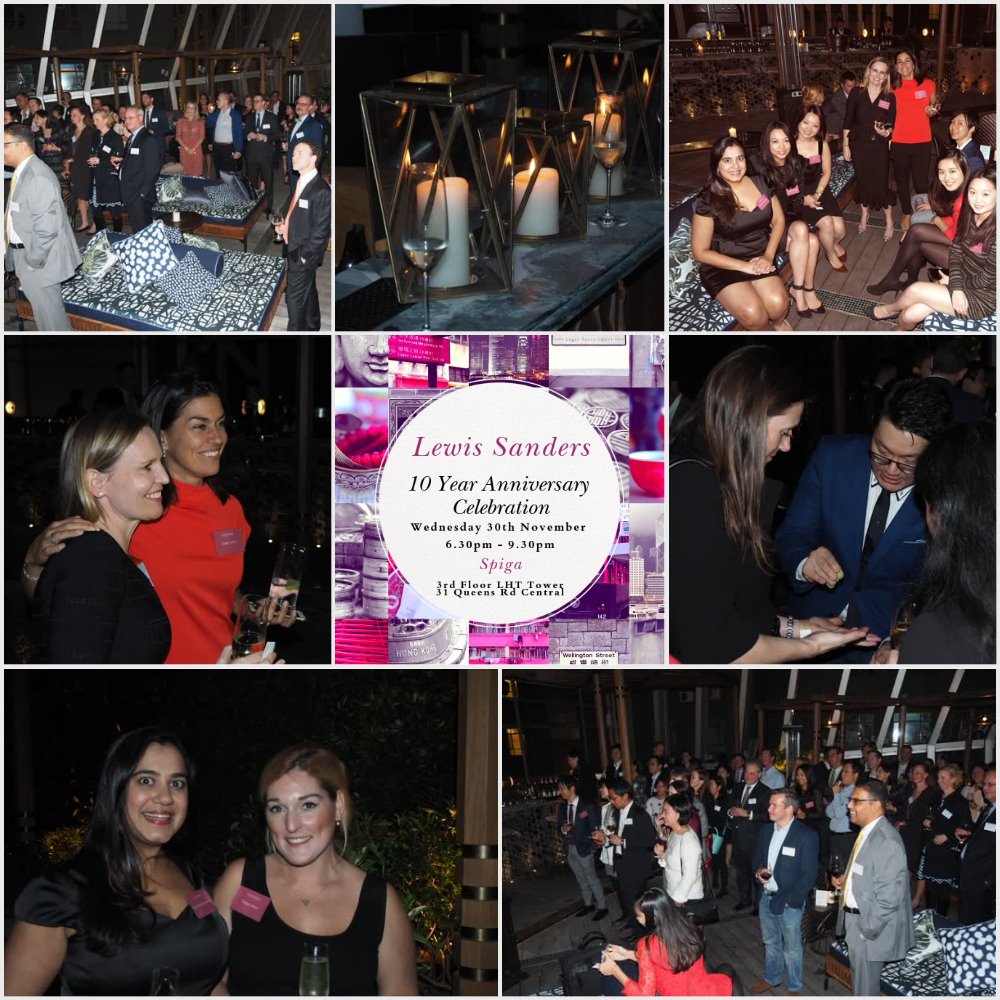We spoke to Lindsey Sanders and Emily Lewis, co-founders of recruitment specialist Lewis Sanders, about the outlook for the legal recruitment market in Hong Kong and China. The firm celebrated its 10th anniversary at the end of 2016.

Lindsey Sanders
How would you summarise the current state of the legal recruitment market in Asia?
The market on the law firm side is extremely active at both associate and partner level. Most firms in Hong Kong and China have multiple openings with particular area of focus in corporate M&A/PE, disputes, regulatory and banking. The IPO market was quiet last year but we have seen an increased demand for corporate finance lawyers with Mandarin during the past three months.
There was a significant number of partner moves in 2016 and we expect this activity to continue into this year. While many firms have particular mandates at partner level, most are opportunistic and will look at individuals with a good business case, strong client relationships and track record.
The in-house market is very buoyant as multinational companies and financial institutions continue to expand their legal teams in order to broaden their capability in Asia and reduce external costs. We receive new instructions for in-house roles on a daily basis from both existing and new clients and the overwhelming preference for most associate level candidates is still to move in-house. Partnership at a law firm is no longer viewed as the ultimate career objective for most lawyers in Hong Kong, who place more value on working closely with the business line and more flexibility around working hours.
Are salaries and bonuses on the rise?
In 2016 US law firms raised base salaries across the board in line with the US increases with first year lawyers now starting on US$180,000. The gap between the UK and US firms has widened further causing both retention and hiring issues for the UK firms whose pay scale has remained fairly flat in comparison over the last few years. We do not expect to see much movement on law firm base salaries or bonus payments this year.
For in-house, financial institutions and MNCs tend to be on par with UK firms in terms of base. Bonuses with the banks are between 10 percent to 15 percent down on last year and have been more varied this year based on individual performance. We are still seeing some redundancies amongst the legal teams of banks at senior level but these are few in number.

Emily Lewis
What types of specialisations are most in demand?
There is high demand in M&A and PE at the mid to senior associate level, particularly with Mandarin language skills. Lawyers with contentious regulatory experience also have a range of options with roles coming up in law firms, financial institutions and also with the regulators.
How has cost-cutting at banks and corporations affected the in-house market?
The global investment banks have made a number of redundancies at senior level in legal over the last few years as part of a cost-cutting exercise but generally these roles have been replaced with new headcount at a more junior level. We have seen a significant number of new roles across the banks since the start of the year compared to last year, which was relatively quiet during the same period. We have not seen cost-cutting affect legal hiring in the commerce and industry sector, and there is an increased number of roles arising year on year.
What is your outlook for 2017?
Given current levels of activity, we are optimistic that this year will be busy with plenty of new opportunities coming through. There are likely to be a range of options for good quality lawyers with Mandarin language skills both with law firms and in-house.







